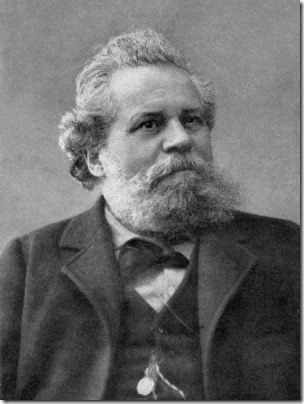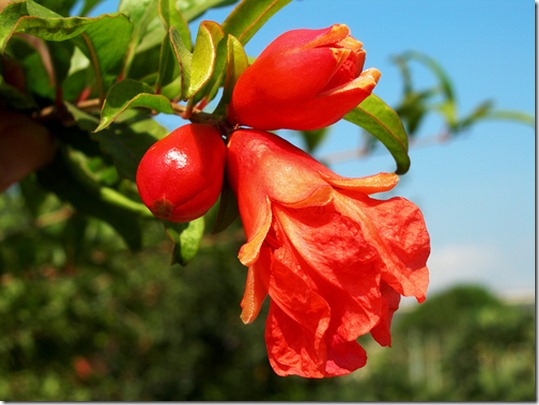Last Sunday we went for a day out in the hills between Parma and Piacenza, in Emilia Romagna. While we were wandering around Castell’Arquato, a beautiful medieval town on the outskirts of the Pianura Padana, I noticed that almost every garden had un albero di melograno (a pomegranate tree), covered in bright red flowers. My mind immediately went to a poem by Giosuè Carducci entitled Pianto Antico (Ancient Cry).
 |
| Giosuè Carducci |
Giosuè Carducci was born near Pietrasanta, Lucca, in 1835, and died in Bologna in 1907. In 1906 he received the Nobel Prize for Literature. This poem, written in 1871, is dedicated to his son Dante, who had died from typhus the year before, at the age of three. The title, Pianto Antico, refers to the timeless cry of despair made by every father who has lost his son. In the poem Carducci compares the blossoming pomegranate tree in his garden to himself, whom he likens to a tree that has dried out after the death of his only son, the flower of the tree.
 |
| Il fiore del melograno |
The choice of a pomegranate tree is also a symbolic one. Since ancient times the pomegranate has been used as a symbol of fertility and rebirth amongst Mediterranean cultures. It was frequently used by the Etruscans, whose funerary urns often show the deceased, usually a woman, holding a pomegranate in her hands.
|
Pianto Antico
L’albero a cui tendevi
la pargoletta mano,
il verde melograno
da’ bei vermigli fior,
nel muto orto solingo
rinverdì tutto or ora
e giugno lo ristora
di luce e di calor.
Tu fior della mia pianta
percossa e inaridita,
tu dell’inutil vita
estremo unico fior,
sei ne la terra fredda,
sei ne la terra negra;
né il sol più ti rallegra
né ti risveglia amor.
|
Ancient Cry
The tree towards which
you stretched your baby hand
the green pomegranate
with its beautiful vermilion flowers,
in the silent solitary garden
has now come back to life,
and June refreshes it
with light and warmth.
You, flower of my beaten
and dried out plant,
you, of my useless life
last ultimate flower,
you are in the cold earth,
you are in the black earth;
neither the sun delights you more
nor love reawakens you.
|


Comments:
Mike:
Che meravigliosa poesia! Grazie. Ho pianto con lui per suo figlio.
Serena:
@Mike Salve Mike!
Sì, è davvero una bellissima poesia e anch’io ho pianto tante volte leggendola, come pure l’altra poesia di Carducci per il figlio Dante: “Funere mersit acerbo”.
Saluti da Serena